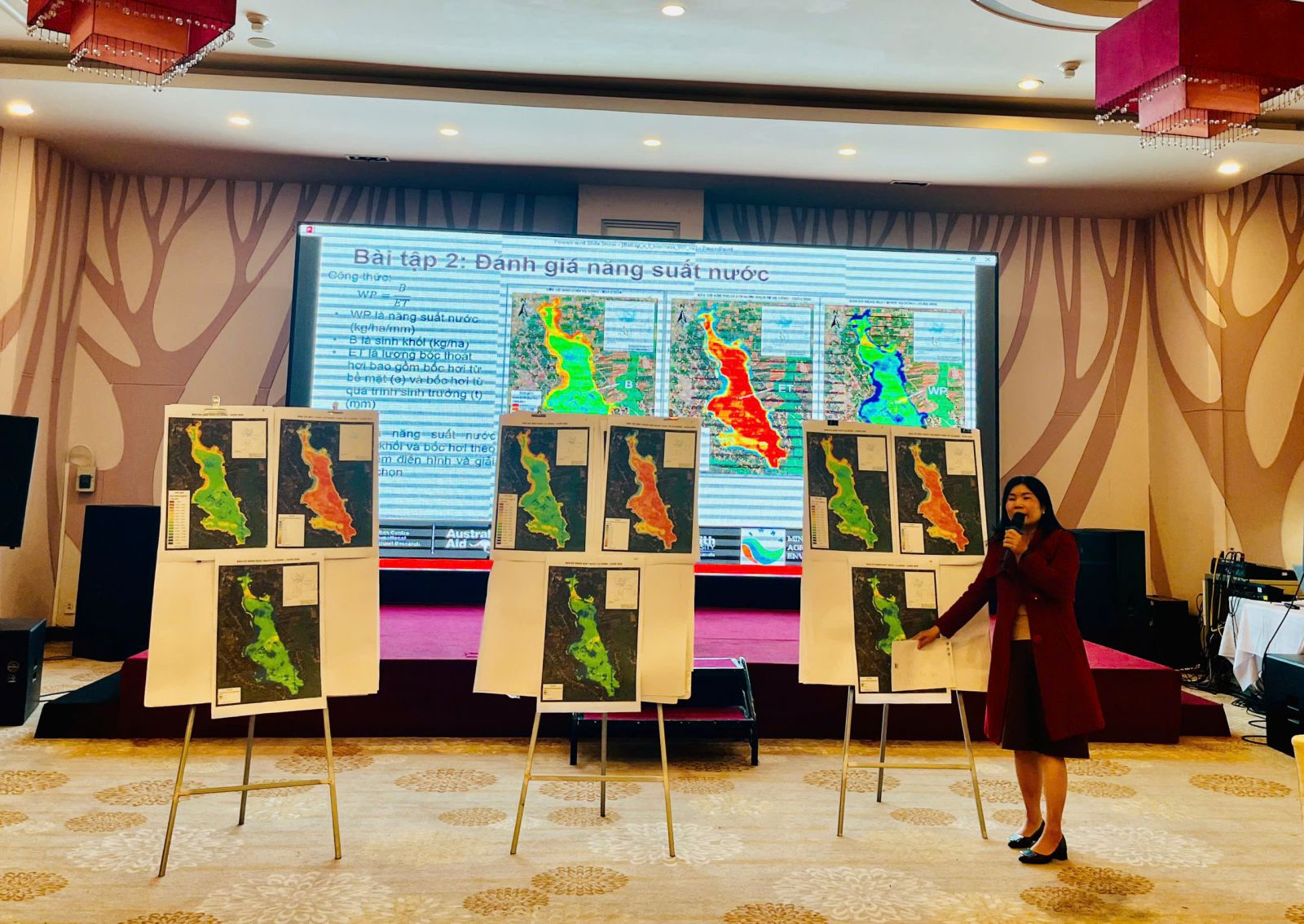Training workshop on the role remote sensing and water accounting in agricultural water management
On September 4–5 in Lam Dong Province, the Institute for Water Resources Planning (IWRP) in collaboration with the International Water Centre (IWC), Griffith University (Australia), organized a stakeholder training workshop under the project “The Role of Remote Sensing and Water Accounting in Supporting Agricultural Water Management in Southeast Asia.”
.jpg)
The workshop was co-chaired by Dr. Regina Souter – Director of the International Water Centre – and Dr. Ha Thanh Lan – Head of the Research Team in Vietnam and Head of the Department of Training and International Cooperation, IWRP. The event brought together researchers from IWRP, government officials, irrigation management units, academic institutions, and research organizations across the Central Highlands region.
In his opening remarks, Dr. Ha Thanh Lan emphasized the importance of applying remote sensing technologies and water accounting tools in water resource management, particularly in the Central Highlands, where water demand is increasing and climate change impacts are becoming more severe.
During the technical sessions, the research team introduced the concepts and methodologies of water accounting, alongside results of the needs and capacity assessment on water data use in the Central Highlands. Case studies at multiple levels—from sub-basins and headworks to farmer water user groups—illustrated the potential application of these tools in irrigation system operation and decision-making.
Participants engaged in active discussions, highlighting the urgent need for a unified, accurate, and standardized water database, as well as tools for automatic and regular data integration to support timely decision-making. Several opinions also stressed the importance of synchronized training for managers, irrigation operators, enterprises, and even key farmers, ensuring that policies are effectively implemented from the central to the local level.
Technical staff directly operating irrigation systems proposed the development of a shared online platform to update and verify remote sensing data, reducing manual reporting workload. Pilot implementation at sites with existing automated monitoring systems was suggested as a critical step toward scaling up the application and building confidence among management agencies.
Participants also appreciated the research team’s approach of carefully analyzing local needs and capacities before introducing solutions, considering it a sustainable pathway that ensures both scientific rigor and practical relevance for future projects.
The two-day workshop provided a comprehensive overview of the potential for applying remote sensing and water accounting in agricultural water management. Contributions from participants underscored the consensus that building staff capacity, developing modern water data systems, and applying advanced management tools are essential priorities. These will serve as the foundation for refining the project and advancing scientific, effective, and practice-oriented water management solutions, not only in Vietnam but also across Southeast Asia.
Highlights from the training workshop in photos:
.jpg)

.jpg)

|
The project “Understanding the role of remote sensing in supporting agricultural water management in Southeast Asia” is funded by the Australian Centre for International Agricultural Research (ACIAR), under the Australian Government’s Development Assistance Program. The project aims to improve water use efficiency in smallholder agriculture through the application of remote sensing and water balance accounting tools in sub-basin-level water management. Its specific objectives include:
For further information, please contact: |
- Training course on the application of WaPOR data in water resources management
- IWRP collaborates with the International Water Centre (IWC) of Griffith University, Australia, on Remote Sensing for Agricultural Water Management
- IWRP and a delegation of South Korean experts held discussions on the project "Establishment of Intergrated Water Resources Information Management System in the Ma River Basin of Central Vietnam (Thanh Hoa Province)."
- How Vegetation and Water Help Cool the Air
- IWRP and IHI (Japan) discuss cooperation opportunities in water resource management and disaster prevention
- Sustainable Water Management - Participatory Cooperation Framework Towards Managing Water-Related Risks
- Join us in creating a participatory cooperation framework to effectively manage water – related risks!
- Building Climate Resilience: Tailored Training on Embracing Nature-Based Solutions in Vietnam, Sponsored by Nuffic.
- The technical exchange seminar discussed the scientific and technological task outlined in the memorandum between Japan, Indonesia, and Vietnam titled "Development of machine learning and remote sensing-based water management platform for sustainable agri
- Invitation to Participate in the e-Asia Project Workshop: Advancing Water Management Platforms in Asian Deltas
- Young Professionals for Sustainable Water Resources Forum 2023 (YP4W Forum 2023)
- IWRP met experts of the FAO Water Scarcity Program (WSP) for Asia-Pacific
- YP4W FORUM 2023 - CALL FOR REGISTRATION
- MOU signed between the IWRP and the Russian State Hydrometeorological University (RSHU)
- Meeting with the Regional Director of Erhard Muhr GmbH (Germany)





















